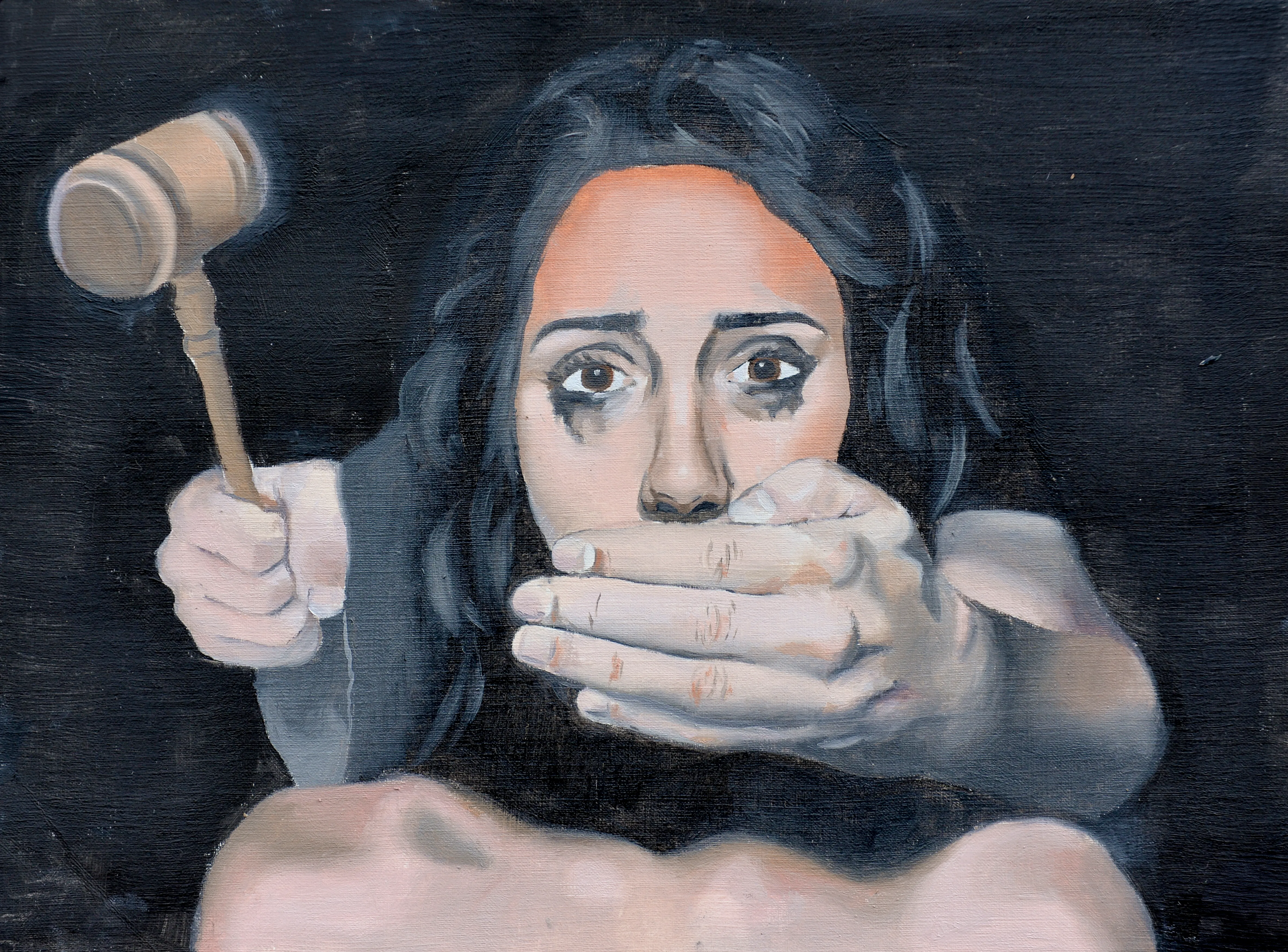
Are Humans Ever Right?
Leela Zebian, LVI, emphasises the importance of jurisprudence in ensuring the law itself does not silence us.
Leela Zebian
LVI

Artwork by Mariella Burns
Art Editor, 2025
Do we even need human right laws? Shouldn’t we naturally act humanely with each other? One of the most crucial aspects of the system of law is human rights. They are essential in modern society as they ensure that every individual can live freely and preserve their humanity.
You might be surprised that so many procedures are needed to protect people’s everyday freedoms, but good morals are not as common as one might think. Many continue to face discrimination and are exploited through unfair means, begging the question:
can human rights ever be effectively implemented to protect everyone’s dignity while allowing full freedom?
The answer is no. There is no perfect solution to fully protect us all from physical harm; to shelter us from emotional abuse; to ensure everyone constantly feels comfortable and respected. This is because human rights can sometimes be vague and difficult to define, making them even more difficult to implement effectively. However, we can try to take effective measures to protect everyone as much as possible and to ensure everyone has equal rights and is able to live a dignified life, even if they might not always feel fully ‘comfortable’. The argument of “the rights of man” could go on forever – I have the right to do this, you have the right to do that. This often leads to contradictions and conflicts, and ultimately, a lack of an effective solution.
As the French philosopher Deleuze states
the “rights of man” are “purely abstract, completely empty.
By this, he means they are simply ideas. We cannot state human rights and label them ‘laws’ and assume this will work because these are not laws, they are human rights which should innately exist. Let me cite the example of the taxi:
In the late 1900s, smoking in taxis in Paris was forbidden. However, a man refused to be prevented from smoking in his taxi and so he sued the cab. The cab lost the case based on the argument that because the man was renting the taxi, the driver must be assimilated to the renter, who had the right of use and abuse and thus the right to smoke in his rented location. About a decade later, there were no taxis in which one could smoke, and the cab would not have lost such a case. This is because instead of simply stating “you do not have the right to smoke in a taxi” it was declared that the taxi was a form of public service. There already existed the law that forbade smoking in a mode of public service and thus this was effective. It was no longer an argument of whether the renter’s right to smoke was more important than the driver’s right to not desire inhaling that smoke – it became a clear and simple law that could not be negotiated through the back and forth of “the rights of man”.
Ultimately, while we cannot ensure everyone’s ‘comfort’, we can try to ensure maximum protection and security through implementing effective laws to protect human rights. As discussed, the “rights of man” is just an idea, not a system of law. As Deleuze has suggested, we must focus on jurisprudence – the study and subsequent educated implementation of the law; instead of attempting to apply “the rights of man” we must think creatively to implement different forms of jurisprudence that fit each case and significantly decrease the possibility of unsafety, discrimination and exploitation. This is how we address the vagueness of human rights and the tension between freedoms – by eliminating the issue of having to prioritise one person’s ‘freedoms’ or ‘rights’ over another’s altogether through clear and direct laws. As Deleuze said
There are no “rights of man,” only rights of life, and so, life unfolds case by case.